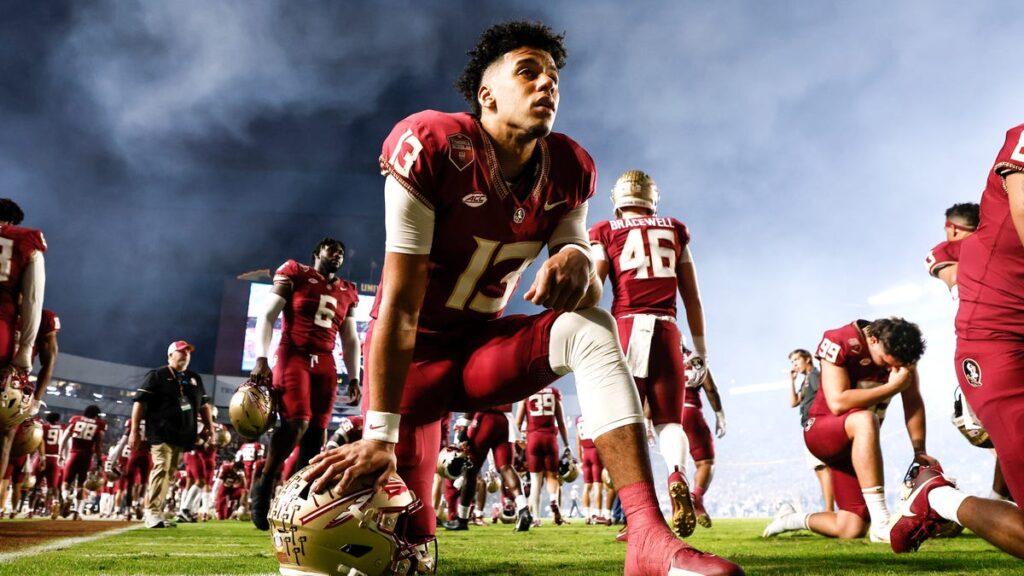As a way to avoid a possible future snub from the college football playoffs, Florida State has reportedly renewed in-depth discussions about its long-term future as a member of the ACC, according to ESPN. In a letter to Florida Sen. Rick Scott, the College Football Playoff Committee cited injuries to key players — most notably quarterback Jordan Travis — and strength of schedule as central reasons as to why the 13-0 Seminoles were on the outside looking in.
While the Seminoles would not leave the ACC in the near term, the situation is “expected to come to a head in the near future,” per ESPN.
Florida State isn’t leaving the ACC anytime soon because, frankly, there is nowhere for it to currently go. The Power Five conferences have shrunk to a Power Four in the last calendar year, with the Pac-12 and parts of the Big 12 absconding for other conferences. The Big Ten (18), SEC (16), Big 12 (16), and ACC (17) have their teams locked in for the 2024 and 2025 seasons.
Moreover, each of these leagues signed new media rights deals within the last six months. The ACC’s is both the longest-running – expiring in 2036 – and the most ironclad. When a group of seven ACC schools led by Florida State and Clemson threatened to leave the conference, the conference quelled dissent by agreeing to shift to a performance-based revenue model. However, that more favorable agreement for big schools also comes with a massive $120 million buyout. This would be paid in addition to any legal fees tied to negotiations. For reference, Texas and Oklahoma paid a combined $100 million to leave the Big 12 in the last year of their media rights deal.
It’s not unheard of for schools to pay that to get into the right situation. SMU agreed to forgo any media rights share to join the ACC, instead gathering a group of boosters to chip in $200 million to front the lost revenue. Florida State collectively operates an endowment of $709 million and raises about $70 million in donations annually.
Even if they were to get out, though, where could the Seminoles land? Their ideal conference partner would likely come from the SEC; their media deal isn’t up until 2034. The Big 12’s will expire in 2031. The Big Ten’s deal expires in 2030, but it is arguably the conference least receptive to new members. The new-look Big Eighteen’s most southern school east of the Mississippi River is Indiana University, over 750 miles away. That doesn’t include cross-country trips to play USC, UCLA, Oregon, or Washington. If they took their first opportunity to jump ship, Florida State would be on an island.
None of these logistics even factor in the fact that the problem Florida State is currently grappling with disappears next season. The College Football Playoff is set to expand to 12 teams in 2024. The Seminoles were the first team out of playoff contention, making them a lock for next year’s bowl. If rankings revert from the newly adopted “best product” model to their original “most deserving” selection process, Florida State’s 13-0 schedule would also likely earn it a bye in this format.
The Seminoles were undeniably screwed out of a spot in this year’s college football playoff. That doesn’t mean the ACC isn’t the best destination for them. Florida State continues to clean up competition, with consistent success in other sports like softball and women’s soccer. There is no path to a conference exit without hemorrhaging money, and the problem they have is about to be completely resolved. This is short-sighted squabbling that, hopefully, should stop soon.




